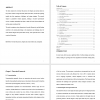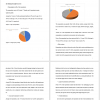Тема: Sociological Analysis of Everyday Life Practices of Asylum-Seekers and Refugees from Northern Africa in Italy
Закажите новую по вашим требованиям
Представленный материал является образцом учебного исследования, примером структуры и содержания учебного исследования по заявленной теме. Размещён исключительно в информационных и ознакомительных целях.
Workspay.ru оказывает информационные услуги по сбору, обработке и структурированию материалов в соответствии с требованиями заказчика.
Размещение материала не означает публикацию произведения впервые и не предполагает передачу исключительных авторских прав третьим лицам.
Материал не предназначен для дословной сдачи в образовательные организации и требует самостоятельной переработки с соблюдением законодательства Российской Федерации об авторском праве и принципов академической добросовестности.
Авторские права на исходные материалы принадлежат их законным правообладателям. В случае возникновения вопросов, связанных с размещённым материалом, просим направить обращение через форму обратной связи.
📋 Содержание
INTRODUCTION 4
Chapter 1. Theoretical Framework 6
1.1 Transnationalism 6
1.2 Social Integration 6
1.3 Human Rights and Legal Frameworks 7
1.4 Critical Race Theory (CRT) 7
1.5 Social Capital 8
1.6 Cultural Identity and Adaptation 8
1.7 Power and Resistance 9
Chapter 2. Profile of Refugees and asylum-seekers in Italy 10
2.1 General Profile 10
2.2 Legal Framework and Role of NGOs 13
2.3 Accommodation 17
2.4 Living Supplies and Health 21
2.5 Language Acquisition 23
2.6 Education 25
2.7 Employment 28
Chapter 3. Research on The Target Groups 33
3.1 General Research Descriptions 33
3.1.1 Main Objectives 33
3.1.2 Research Questions 34
3.1.3 Research Methods 34
3.2 Result Analysis 35
3.3 Conclusion on Quantitative Survey 43
CONCLUSION 45
Reference 49
Appendix 52
📖 Введение
The objective of this study is to gain a clear understanding of the experiences from various aspects of the everyday lives of African refugees and asylum-seekers in Italy. By utilizing a structured questionnaire, the thesis aims to examine the demographic characteristics, daily routines, housing situations, language and communication challenges, education opportunities, employment experiences, social and community activities, access to healthcare, legal documentation and residency processes, and the coping strategies employed by this population.
The thesis contains two main research questions on everyday life practice of North African refugees and asylum seekers in Italy.
1. What are the main challenges for the target North African refugees and asylumseekers in accessing accommodation, education, employment, and social support services in Italy?
2. What coping strategies do the target North African refugees and asylum-seekers employ to overcome challenges and foster social integration in Italy?
To answer the research questions, the thesis will conduct a quantitative survey to the target groups. The quantitative approach, through the administration of a questionnaire, enables the collection of standardized data from groups of African refugees and asylum-seekers. This approach allows for statistical analysis and the identification of patterns, trends, and relationships among different variables. The findings will provide a comprehensive understanding of the everyday life practices and experiences of North African refugees and asylum-seekers in Italy, offering valuable insights into their integration processes and identifying areas that require further attention and support.
✅ Заключение
Challenges:
1. Legal and Administrative Challenges:
The asylum seeking and refugee approving procedures in Italy can be rather tough and the quotas are limited. Challenges include lengthy waiting periods, limited access to legal support, and uncertain legal statuses. These factors create significant stress and uncertainty in their daily lives.
2. Accommodation and Living Conditions:
African refugees often face substandard housing conditions, overcrowding, and inadequate access to basic services. Discrimination in the rental market and the lack of affordable housing contribute to their precarious living situations, impacting their well-being and integration prospects.
3. Language and Education:
Language barriers pose a significant challenge for African refugees in Italy. Limited proficiency in Italian affects their ability to access education, employment opportunities, and social interactions.
4. Employment
Obstacles to employment and economic integration are commonly stressed. African refugees often encounter discrimination, limited job opportunities, and difficulties in getting their foreign qualifications recognized. Informal and precarious work arrangements are prevalent, affecting their financial stability and social inclusion.
5. Social Integration and Networks:
The role of social networks in African refugees' everyday lives can be very important. Strong community ties and support networks within the African diaspora are identified as important sources of social connection, practical assistance, and emotional support. However, due to the lack of forging meaningful connections with the host society, it can be very challenging for them to culturally integrate.
6. Healthcare
African refugees face specific health challenges, including limited access to healthcare services, mental health issues due to traumatic experiences, and barriers to obtaining health insurance.
...





